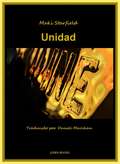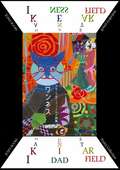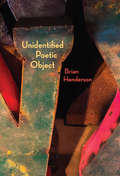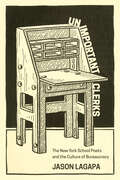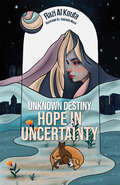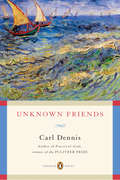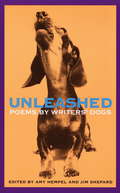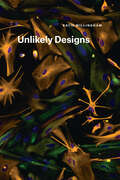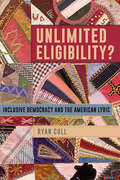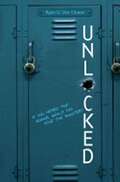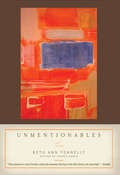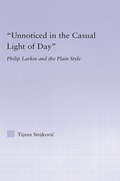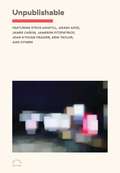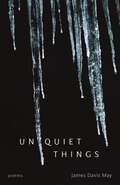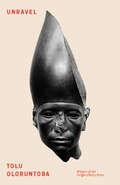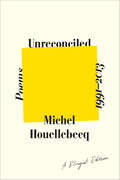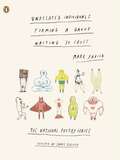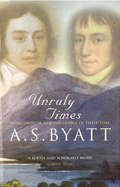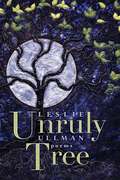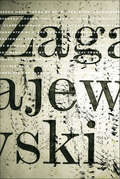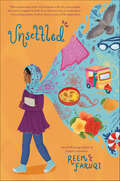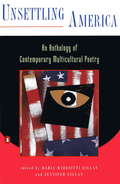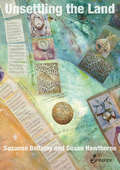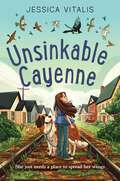- Table View
- List View
Unidad
by Maki StarfieldUnidad es el segundo libro de colección de Maki Starfield en español. Sus poemas / haiku te llevan a su mundo de meditación zen, amor, viajes. Partes de su alma que puedes tocar, leer, explorar. Además, su poesía te muestra cómo verte tal como eres en realidad. Y cómo ver las cosas y el mundo como realmente son. Adéntrate por un momento en esta travesía de la reflexión y el reencuentro con el ser y vive entre sus líneas el sentimiento expresado de su alma misma que la autora nos regala en esta hermosa colección.
Unidad
by Maki StarfieldMaki Starfield es una poetisa japonesa. Su enérgica escritura que abarca desde la poesía hasta el haiku es notable. Trajo 20 libros en tres años. 19 libros son co-autorizados con poetas del mundo, como Narlan Matos, Luca Benassi, Helen Cardona, John Fitsgerald, Lidia Chiarelli, Huguette Bertrand, Yesim Agaoglu, Bill Wolak. Dileep Jhaveri, Sarah Thilykou, Willem M. Roggeman,Yiorgos Veis, Xiao Xiao, Dumu Luofei, Ajei-Ajei-Bhaa, Ikuyo Yoshimura,Michael Augustin, Konstantinos Bouras, Paddy Bushe, Yao Yuan, Yu Xiu, Chuang, Yun-Hui, Stathis Gourgouris, John W. Sexton en 17 libros a dúo (3Trío, 1 Cuarteto). Así que, como vemos, ella se extiende en su mundo de la poesía día a día, no, segundo a segundo. Este libro es la primera colección de sus obras de poesía.
Unidentified Poetic Object
by Brian HendersonAstonishingly deft poems that highlight an excess, an emptiness, and a wilderness on the other side of use. In Unidentified Poetic Object, his twelfth collection of poetry, Brian Henderson strikes from language an “alphabet of lightning,” an animacy and urgency in which every object is potent with actions, past and present; every action is alive with the potential of what it might move in the world. And since every object is more than we know in our eagerness to turn it to human use, Henderson wants us to dive into that unknown space.
Unimportant Clerks: The New York School Poets and the Culture of Bureaucracy
by Jason LagapaExamines the ambivalent, often critical relationship of the New York School poets to bureaucratic culture and the conditions of work.Unimportant Clerks identifies a central tension in the writing of the New York School poets: at times their poetry replicates the ideology of bureaucracy while at others—and more persistently—it repudiates related principles of efficiency, routine, and regimentation. Frank O'Hara, John Ashberry, Barbara Guest, James Schuyler, and Eileen Myles each had a clerical or secretarial job at the start of their professional careers. Heirs to Melville's Bartleby and antecedents of our own era of "quiet quitting," they by necessity channeled their creativity into everyday practices of refusing work. Drawing on a range of anti-work traditions, movements, and theories, Unimportant Clerks shows how their poetry reflects and contests a midcentury administrative ethos, anticipating contemporary critiques of precarity and the demands of office work.
Unknown Destiny: Hope in Uncertainty
by Razi Al KoutaRefreshingly honest poems by a former refugee who returned home to a world turned upside down by war. Having lived through the horrors of war and displacement, Razi helps readers find their way. Razi has a rare gift of noticing what others don’t see. Presented in Arabic with an English translation. “Kills the pain that dances in my soul.” – M. Albilal, literature student, Netherlands. “This book is a gift to anyone who thinks they are alone, as Razi melds connections between pain and beauty in ‘a cave of great sadness and extreme, unimaginable love’” – P. Y., psychologist and trauma specialist, USA. “There is something intensely intimate in Razi’s plaintive lamentation: a woundedness one only allows a close friend to hear.” – J. K., lover of poetry.
Unknown Friends
by Carl DennisFrom the winner of the Pulitzer Prize and the Ruth Lilly Prize Carl Dennis has become one of the most important American poets writing today. <P><P>Unknown Friends, his tenth book, is about separation and connection, about actual friends we can never know fully and friends never met who are summoned into existence through the efforts of an imagination that insists on dialogue. <P>While accepting our ignorance as inevitable, the poems work to expand the notion of what it means to be part of a community larger than any we can comprehend, both a community given to us by history and one outside of history through which the world of experience is nurtured and sustained.
Unleashed: Poems by Writers' Dogs
by Jim Shepard Amy HempelAn irresistible gift for dog lovers: poems from the dogs' point of view, written by the well-known writers & poets who love them. Filled with canine inspiration, 64 of our most respected literary lights have looked at the world from their dogs' points of view & discovered a remarkable range of thought & feeling. In styles as diverse as Arthur Miller's "Lola's Lament," Cynthia Heimel's "Sally," & Stephen Dunn's "Buster's Visitation," the results are by turns hilarious, silly, & deeply moving-as individual as the dogs themselves. The dogs hold forth formally (sonnets! villanelles! haiku!) & in free verse about the things that most concern them: food, play, food, & their masters. Photographs & drawings of the pooch poets accompany the verses.
Unlikely Designs (Phoenix Poets Ser.)
by Katie WillinghamA collection intent on worrying the boundaries between natural and unnatural, human and not, Unlikely Designs draws far-ranging source material from the back channels of knowledge-making: the talk pages of Wikipedia, the personal writings of Charles Darwin, the love advice doled out by chatbots, and the eclectic inclusions on the Golden Record time capsule. It is here we discover the allure of the index, what pleasure there is in bending it to our own devices. At the same time, these poems also remind us that logic is often reckless, held together by nothing more than syntactical short circuits—well, I mean, sorry, yes—prone to cracking under closer scrutiny. Returning us again and again to these gaps, Katie Willingham reveals how any act of preservation is inevitably an act of curation, an outcry against the arbitrary, by attempting to make what is precious also what survives.
Unlimited Eligibility?: Inclusive Democracy and the American Lyric (SUNY series in Multiethnic Literatures)
by Ryan CullRewrites the dominant narrative of the political work of lyric poetry in the United States since the nineteenth century.What if increased visibility of marginalized identities-a goal of much socially committed lyric poetry in the United States-does not necessarily lead to increased social recognition? For many contemporary scholars, this is the central question of lyric politics.Unlimited Eligibility? revisits and deeply historicizes this question. Ryan Cull explores the relationship of a diverse set of poets, including Walt Whitman, Jean Toomer, Hart Crane, James Merrill, Thylias Moss, and Claudia Rankine, to a series of movements intended to build inclusion: the St. Louis Hegelians, cultural pluralism, identity politics, and multiculturalism. In tracing the tensions in lyric poetry's merger with the pursuit of recognition, Cull offers a new history of the political work of lyric poetry while exposing the discursive roots of the nation's faltering progress toward becoming a more inclusive democracy.
Unlocked
by Ryan G. Van CleaveFourteen-year old Andy is the janitor's son, and an outcast. It's rumored that formerly popular Blake, who has become a loner since his dad's death, has a gun hidden in his locker, and beautiful, unattainable Becky Ann wants to see it. In order to impress her, Andy steals the keys from his dad and opens up Blake's locker, but the gun isn't there. A friendship develops between the two loners, and Blake shares most of his secrets with Andy, including the gun. But there's one secret that worries Andy more than anything-the date circled on Blake's calendar. Does Blake have something planned? Something that Andy can prevent?
Unmentionables: Poems
by Beth Ann FennellyA new collection by a poet declared "one of the most exciting poets of her generation" (Harvard Review). With elegant wordplay and her usual subversive wit, Beth Ann Fennelly explores the "unmentionable"--not only what is considered too bold but also what can't be said because words are insufficient. In sections of short narratives, she questions our everyday human foibles. Three longer sequences display her admirable reach and fierce intelligence: One, "The Kudzu Chronicles," is a rollicking piece about the transplanted weed. Another, "Bertha Morisot: Retrospective," conjures up a complex life portrait of the French impressionist painter. The third presents fifteen dream songs that virtually out-Berryman Berryman.
Unnoticed in the Casual Light of Day: Phillip Larkin and the Plain Style (Studies in Major Literary Authors)
by Tijana StojkovicLarkin's poems are often regarded as falling somewhere between the traditional 'plain' and the more contemporary 'postmodern' categories. This study undertakes a comprehensive linguistic and historical study of the plain style tradition in poetry, its relationship with so-called 'difficult' poetry, and its particular realization in the cultural and historical context of 20th-century Britain. The author examines the nature of poetry as a type of discourse, the elements of, and factors in, the development of literary styles, a close rhetorical examination of Larkin's poems within the described poetic frameworks, and his position in the British twentieth-century poetic canon.
Uno, Dos, Tres: One, Two, Three
by Pat Mora Barbara LavalleePictures depict two sisters going from shop to shop buying birthday presents for their mother. Rhyming text presents numbers from one to ten in English and Spanish. GLOSSARY.
Unpublishable
by Chris Molnar and Etan Nechin&“Being alive is just microdosing death.&” Collected works from the notorious Brooklyn reading series, from notable and emerging writers alike. A famed underground reading series at POWERHOUSE Arena in Brooklyn, organized by Chris Molnar and Etan Nechin, Unpublishable draws hundreds of devotees eager to hear from authors known and unknown as they share their most unusual, unexpected and unpublishable work. It is a home and meeting place for "writing that excites you, that scares you, things that you delete from your browser history. The piece you can't submit but can't stop thinking about either, burning a hole in the bottom of your desk drawer. Writing from any genre that is uncharacteristic, outré, or offending of sensibilities, that is impossible to place or be published in some fashion." Writers from a range of cliques and communities participate, giving striking and unusual performances. Each event includes a chapbook of pieces read, and this anthology collects them together for the first time. Unpublishable has now become Archways, an even more hotly attended reading series which is the lifeblood of this imprint, and the barrier-defying ethos it represents is a critical part of Archway Editions' DNA. Contributors include Mary Boo Anderson, Daphne Palasi Andreades, Steve Anwyll, Hratch Arbach, Arash Azizi, James Cañon, Nifath Karim Chowdhury, Jessica Denzer, Naomi Falk, John Farris, Jameson Fitzpatrick, Caitlin Forst, Jean Kyoung Frazier, Chris Gonzalez, Evan Gorzeman, Mina Hamedi, Brent Kite, Jason Koo, Noah LeBien, Anya Lewis-Meeks, Chris Molnar, Etan Nechin, Nicodemus Nicoludis, Kate Olsson, Erin Taylor, and Joanna C. Valente.
Unquiet Things: Poems (Goat Island Poetry)
by James Davis MayGrounded in wonder and fueled by an impulse to praise, the poems in James Davis May's debut collection, Unquiet Things, grapple with skepticism, violence, and death to generate lasting insights into the human experience. With compassion and humor, this second and final volume in Claudia Emerson's Goat Island Poets series exposes the unseen tragedies and rejoices in the small, surprising moments of grace in everyday life.May's poems impart sincere astonishment at the natural world, where experiences of nature serve as "stand-ins, almost, / for grace." His poems seek to transcend cynicism, turning often to the landscapes of North Georgia, his native Pittsburgh, and eastern Europe, as well as to his literary forebears, for guidance. For the poet, no force propels that transcendence more powerfully than love: love for his wife and daughter, love for language, and love for the incomprehensible world that he inhabits. These stylistically varied poems are by turns conversational, earnest, self-deprecating, meditative, and often funny, whether they're discussing grand themes such as love and beauty, or more corporeal subjects like fever and food poisoning.Lyrical and strange, tragic and amusing, Unquiet Things traces an experiential journey in the ordinary world, uncovering joys that span from the lingering memories of childhood to the losses and triumphs of adulthood.
Unravel: Poems
by Tolu Oloruntoba&“These are poems of deep thought, passionate engagement, and often searing images.&” —Toronto Star (on Each One a Furnace)A poetic exploration of the cyclical philosophy of dismantling and remaking, Unravel is a moving and inventive rove through what could happen in the deconstructed aftermath of person and world.
Unreconciled: Poems, 1991–2013: A Bilingual Edition
by Michel HouellebecqSelected poems from the critically acclaimed author of Submission and The Elementary ParticlesA shimmering selection of poems chosen from four collections of one of France’s most exciting authors, Unreconciled shines a fresh light on Michel Houellebecq and reveals the radical singularity of his work. Drawing on themes that are similar to the ones in his novels, these poems are a journey into the depths of individual experience and universal passions.Divided into five parts, Unreconciled forms a narrative of love, hopelessness, catastrophe, dedication, and—ultimately—redemption. In a world of supermarkets and public transportation, indifferent landscapes and lonely nights, Houellebecq manages to find traces of divine grace even as he exposes our inexorable decline into chaos.Told through forms and rhythms that are both ancient and new, with language steeped in the everyday, Unreconciled stands in the tradition of Baudelaire while making a bold new claim on contemporary verse. It reveals that in addition to his work as an incisive novelist, Houellebecq is one of our most perceptive poets with a vision of our era that brims with tensions that cannot—and will not—be reconciled.
Unrelated Individuals Forming a Group Waiting to Cross
by Mark YakichMark Yakich is an original... In the unabashedly unwieldy title and in each poem, there are no borders drawn between the commonplace and the metaphysical. There are journeys, crossings, and departures--all evocative of the loneliness, alienation, and desire for identity with another (person or place), which, formalized, makes this work recognizable as art of a very high order." --James Galvin, Guggenheim Foundation and National Endowment of the Arts Fellow
Unruly Times: Wordsworth and Coleridge in Their Time
by A S ByattUnruly Times is a superlative portrait of the relationship between Wordsworth and Coleridge, and a fascinating exploration of the Romantic Movement and the dramatic events that shaped it. With a novelist's insight and eye for detail, A. S. Byatt brings alive this tumultuous period and shows a deep understanding of the effects upon the minds of Wordsworth, Coleridge and their contemporaries - de Quincey, Lamb, Hazlitt, Byron and Keats.
Unruly Tree: Poems (Mary Burritt Christiansen Poetry Series)
by Leslie UllmanThe cryptic prompts—fragments, really—of Brian Eno&’s and Peter Schmidt&’s Oblique Strategies unveiled themselves to Leslie Ullman as rough translations from an obscure language. As an experiment, Ullman used each one as a poem title, and in doing so she accessed a thrill of freedom, uncertainty, and propulsion beyond her own familiar patterns and landscapes. In the process, she found herself exploring the literary, visual, and musical arts from angles that had never occurred to her before.Unruly Tree showcases the most successful of Ullman&’s play, and the result is a marvelous work by a poet at the height of her craft. At its heart this book is about process itself—even when it applies to experiences outside the arts—and about reclaiming an inner freedom many of us lose in our lives as adults in these noisy, rancorous times.
Unseen Hand: Poems
by Adam ZagajewskiOne of the most gifted poets of our time, Adam Zagajewski is a contemporary classic. Few writers in poetry or prose have attained the lucid intelligence and limpid economy of style that are the trademarks of his work. His wry humor, gentle skepticism, and perpetual sense of history's dark possibilities have earned him a devoted international following. This collection, gracefully translated by Clare Cavanagh, finds the poet returning to the themes that have defined his career—moving meditations on place, language, and history. Unseen Hand is a luminous meeting of art and everyday life.
Unsettled
by Reem FaruqiA Bank Street Best Children’s Book of the Year · Kid's Indie Next List · Featured in Today Show’s AAPI Heritage Month list · A Kirkus Children's Best Book of 2021 · A National Council of Teachers of English Notable Verse Novel · Jane Addams 2022 Children’s Book Award Finalist · 2021 Nerdy Award Winner · Muslim Bookstagram Award Winner for Best Middle School BookFor fans of Other Words for Home and Front Desk, this powerful, charming immigration story follows a girl who moves from Karachi, Pakistan, to Peachtree City, Georgia, and must find her footing in a new world. Reem Faruqi is the ALA Notable author of award-winning Lailah's Lunchbox."A lyrical coming of age story exploring family, immigration, and most of all belonging.” —Aisha Saeed, New York Times bestselling author of Amal Unbound“This empowering story will resonate with people who have struggled to both fit in and stay true to themselves.” —Veera Hiranandani, Newbery Honor author of The Night Diary“A gorgeously written story, filled with warmth and depth." —Hena Khan, author of Amina’s VoiceWhen her family moves from Pakistan to Peachtree City, all Nurah wants is to blend in, yet she stands out for all the wrong reasons. Nurah’s accent, floral-print kurtas, and tea-colored skin make her feel excluded, until she meets Stahr at swimming tryouts.And in the water Nurah doesn’t want to blend in. She wants to win medals like her star athlete brother, Owais—who is going through struggles of his own in the U.S. Yet when sibling rivalry gets in the way, she makes a split-second decision of betrayal that changes their fates.Ultimately Nurah slowly gains confidence in the form of strong swimming arms, and also gains the courage to stand up to bullies, fight for what she believes in, and find her place.
Unsettling America: An Anthology of Contemporary Multicultural Poetry
by Jennifer Gillan Maria Mazziotti GillanA multicultural array of poets explore what it is means to be American This powerful and moving collection of poems stretches across the boundaries of skin color, language, ethnicity, and religion to give voice to the lives and experiences of ethnic Americans. With extraordinary honesty, dignity, and insight, these poems address common themes of assimilation, communication, and self-perception. In recording everyday life in our many American cultures, they displace the myths and stereotypes that pervade our culture.Unsettling America includes work by: Amiri BarakaChitra Banerjee DivakaruniRita DoveLouise ErdichJessica HagedornJoy HarjoGarrett HongoLi-Young LeePat MoraNaomi Shihab NyeMarye PercyIshmael ReedAlberto RiosNtozake ShangeGary SotoLawrence FerlinghettiNellie WongDavid HernandezMary TallMountain ...and many more.
Unsettling the Land
by Susan Hawthorne Suzanne BellamyUnsettling the Land is a relection on the plight of the land in drought-stricken times, conjuring through both text and illustration, the complex relationships that create and sustain our unique Australian landscape in all its majesty, tranquility, and its present suffering.
Unsinkable Cayenne
by Jessica Vitalis“Intensely readable.” —School Library Journal (starred review)When her unconventional parents finally agree to settle down in one place, twelve-year-old Cayenne’s dreams come true—but the reality of fitting in is much harder than she imagined. Acclaimed author Jessica Vitalis crafts an unforgettable historical novel-in-verse about belonging, family, and social class, for fans of Lisa Fipps’s Starfish and Jasmine Warga’s Other Words for Home.As Cayenne enters seventh grade, her parents decide it's time to stop living in their van, roaming from place to place. Cayenne hopes that this means she will finally belong somewhere and make some friends. But it turns out that staying in one place isn’t easy at all.When her social studies class studies the Titanic tragedy (the wreckage has just been discovered and her teacher is obsessed), Cayenne sees more and more parallels between the social strata of the infamous ship and her own life. Will she ever squeeze her way into the popular girls’ clique, even though they live in fancy houses on the hill and she lives in a tiny, rundown home with chickens in the front yard? Is it possible that the boy she likes actually likes her back? Can she find a way to make room for herself in this town? Does she really want to? Maybe being “normal” isn’t all it’s cracked up to be.Set in the mid-1980s, this literary novel is for readers of Megan E. Freeman’s Alone and Erin Entrada Kelly’s We Dream of Space.
